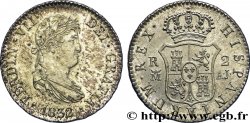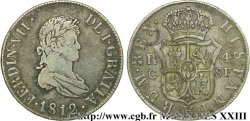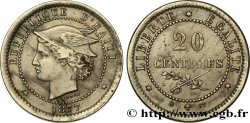- Accueil
- >
- >
fwo_777976 - SPAIN - KINGDOM OF SPAIN - FERDINAND VII 2 Reales 1833 Madrid
35.00 €(Approx. 40.95$ | 30.45£)
Quantity
Add to your cart

Type : 2 Reales
Date: 1833
Mint name / Town : Madrid
Quantity minted : -
Metal : silver
Diameter : 25,5 mm
Orientation dies : 12 h.
Weight : 5,75 g.
Edge : striée
Catalogue references :
Obverse
Obverse legend : FERDINAN.VII. DEI. GRATIA. 1833..
Obverse description : Buste lauré de Ferdinand VII d’Espagne à droite.
Reverse
Reverse legend : HISPANIARUM . REX. .
Reverse description : Écu couronné.
Commentary
Ferdinand VII (1784-1833) est le fils aîné de Charles IV. Roi en 1808, il fut obligé d'abdiquer devant Napoléon et fut relégué au château de Valencey jusqu'en 1813. Le règne de Joseph Napoléon fut l'occasion pour l'Amérique hispanique de secouer le joug espagnol et de se révolter. La révolution mexicaine commença en 1810 et dura en fait jusqu'à la proclamation de la république en 1823. Le Mexique entra en rébellion contre le pouvoir central en 1810. Certains ateliers comme Zacatecas restèrent fidèles à Ferdinand VII jusqu'en 1822. En 1840, le général de Santa Anna devient président, puis dictateur. A partir de 1845, il est en guerre avec les États-Unis. Mexico est prise par les américains le 14 septembre 1847. Au traité de Guadaloupe le 2 mai 1848, le Mexique cède le Texas et la Californie aux États-Unis.
Ferdinand VII (1784-1833) is the eldest son of Charles IV. King in 1808, he was forced to abdicate before Napoleon and was relegated to the Château de Valencey until 1813. The reign of Joseph Napoleon was an opportunity for Hispanic America to shake off the Spanish yoke and revolt. The Mexican Revolution began in 1810 and lasted in fact until the proclamation of the republic in 1823. Mexico entered into rebellion against the central power in 1810. Some workshops like Zacatecas remained loyal to Ferdinand VII until 1822. In 1840, General de Santa Anna becomes president, then dictator. From 1845, he was at war with the United States. Mexico was taken by the Americans on September 14, 1847. At the Treaty of Guadaloupe on May 2, 1848, Mexico ceded Texas and California to the United States
Ferdinand VII (1784-1833) is the eldest son of Charles IV. King in 1808, he was forced to abdicate before Napoleon and was relegated to the Château de Valencey until 1813. The reign of Joseph Napoleon was an opportunity for Hispanic America to shake off the Spanish yoke and revolt. The Mexican Revolution began in 1810 and lasted in fact until the proclamation of the republic in 1823. Mexico entered into rebellion against the central power in 1810. Some workshops like Zacatecas remained loyal to Ferdinand VII until 1822. In 1840, General de Santa Anna becomes president, then dictator. From 1845, he was at war with the United States. Mexico was taken by the Americans on September 14, 1847. At the Treaty of Guadaloupe on May 2, 1848, Mexico ceded Texas and California to the United States







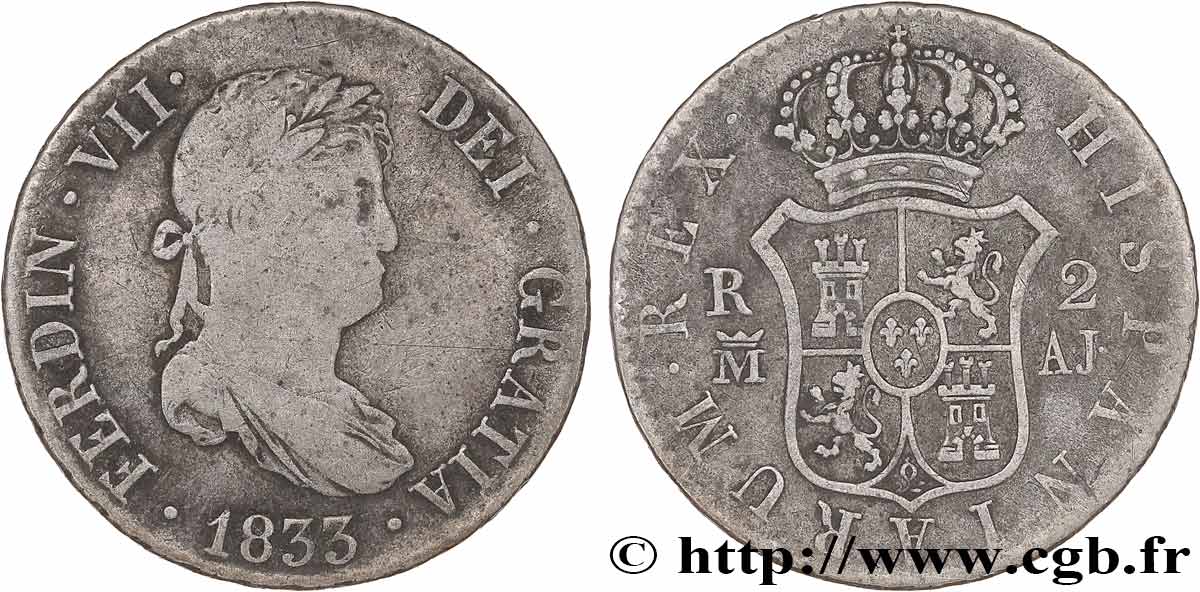
 Report a mistake
Report a mistake Print the page
Print the page Share my selection
Share my selection Ask a question
Ask a question Consign / sell
Consign / sell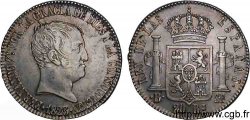
 Full data
Full data

